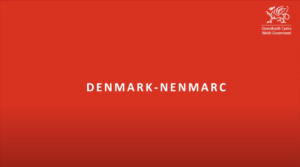Welcome to our first Expert Exporter Newsletter of 2022. Just a month into the year, and what a busy month it has been. Full of new rules for importers into the UK.
1st January saw a number of new challenges for any UK or International company looking to import goods into the country. To help clarify the changes we have produced a FREE 7 KEY CHALLENGES TO TRADE POST-BREXIT download, which covers in detail the areas you need to be aware of and to plan for.
We are also presenting a series of Webinars for The Cabinet Office and Enterprise Nation explaining the changes which you may find useful.

HS Code
Everything starts with the HS Code which defines your product for customs and determines duty rates, licences, approvals, procedures etc. Following a review by the World Customs Organisation some HS codes have been changed, so check yours now to make sure it is still correct.

Customs Declarations
In 2021 importers to the UK could delay full customs declarations by up to 175 days. This easement no longer applies in 2022. Importers must therefore ensure they have the required information at hand to make a full customs declaration at the time of import. No declaration, no import!

Rules of Origin
To claim preferential rates of duty under the UK-EU Trade & Cooperation Agreement it is now necessary to hold supporting evidence of the true origin of your products. This means documents such as a Suppliers Declaration. Without evidence, duty may well be applied and could even be backdated.

Pre-Notification of Imports
Animal or plant products now need to be pre-registered on the new IPAFFS (Import of Products, Animal, Food, Feed System) IT system before entry into the UK. All required certificates & licences are needed. There are increased controls at ports and from 1st July special Border Control Posts will be used.

Goods Vehicle Movement Service (GVMS)
Hauliers and businesses transporting their own goods through major ports need to register with GVMS and pre-register movements in/out of the UK to receive a Goods Movement Reference (GMR). No GMR, no crossing the border!!

VAT
The way VAT is accounted for on imports and exports is an important change post-Brexit and requires careful consideration. There are different rules for B2C and B2B which can affect supply chains and distribution methods. Ask for advice to find the best solution for your business.

Incoterms
Incoterms define who is responsible for what in an import/export transaction such as customs declarations, VAT, duties & freight costs. Agree terms carefully and understand the implications. Mistakes can be expensive and lead to unnecessary administrative burdens.
There is a lot more detail on each of the 7 challenges in our FREE download. We also offer a range of cost-effective support, from answering a single question through to a complete review to help implement the most efficient operating model for your business.
With the right planning and support the challenges are surmountable and once conquered will open up a whole world of new opportunities for your business.









